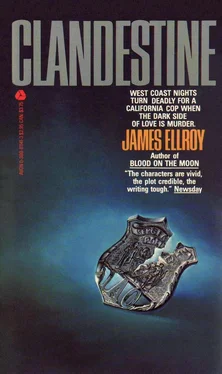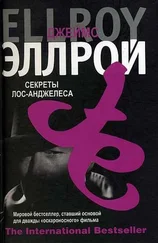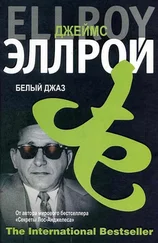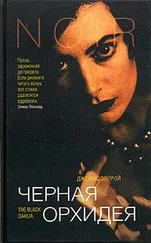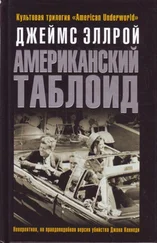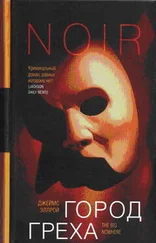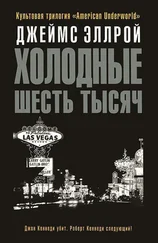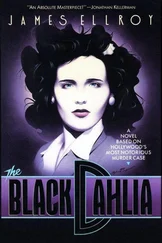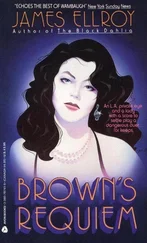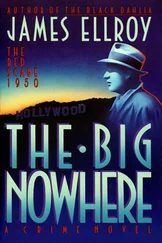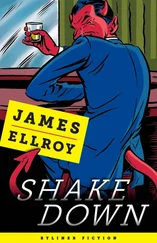“Yeah, but not like Siddell; she’s class. Listen, partner, I need a favor. Will you talk to Siddell? Sound her out on how she feels about me? You’re in tight with Big Sid, you can do it.”
I hesitated, then felt my wheels start to turn. “Sure, Wack, I’ll drop by Big Sid’s place sometime next weekend. He gave me carte blanche for visits. I’m his new gravy train.”
Wacky punched me in the arm. “Thanks, pard. When I’m dodging flaming arrows down in Nigger Gulch and you’re king of Wil shire Vice I’ll remember this moment.”
We pulled into the parking lot of the station. I started to offer a snappy rejoinder as token resistance, but couldn’t. Instead, I walked upstairs to the detectives’ squad room and typed up my report.
I drove to Beverly Hills early Saturday evening, getting honest with myself en route: I could invent all the pretexts I wanted, but I knew I was going to Big Sid’s home for only one reason: to search out Lorna Weinberg and attempt, somehow, to satisfy my curiosity about her. The house was on Canon Drive, just south of Sunset. I was expecting some outrageous pretensions to class and was surprised: the large white Colonial edifice with the well-tended front lawn was understated, almost somber.
I knocked on the door and a Negro maid answered, informing me that “Mr. Big Sid ain’t at home, Miz Siddell be up in her room takin’ a nap.”
“What about Lorna?” I blurted.
The withered old woman looked at me as if I were nuts. “Miz Lorna done moved out years ago.”
“Sorry,” I said, peering through the crack in the door, scanning a living room furnished in old wood and rich fabrics. Somehow I felt that the place might be a treasure trove of wonder, even in Lorna’s absence. I paused, then said forcefully, “Wake up Siddell, will you, please? I have an important message from a friend of hers.”
The old woman eyed me suspiciously, then opened the door and gestured toward the living room. “You waits here,” she said, “I get Miz Siddell.”
The maid trotted upstairs, leaving me alone in the richly appointed room. I noticed some framed photographs above the red brick fireplace, and went over and looked at them. They were individual portraits of Big Sid, Siddell, and Lorna. Sid beamed proudly, Siddell looked as slender-faced as a good photographer could make her, and Lorna looked grave and abstracted, wearing a graduation gown and cap. There was another, larger photo of the family trio: Big Sid clutching his omnipresent cigar, Siddell looking sullen, and Lorna leaning on a cane. I noticed that her right leg was withered and deformed, and felt a nervous flush come over me. I shook my head to clear it, then recalled: Lorna had remained seated during our one meeting. But where was Mother Weinberg?
Lost in my reverie, I felt a sharp tug at my coat sleeve and turned to find Siddell Weinberg pushing herself against me. “I know what you must think of me,” she was saying, “but I don’t do those kinds of things all the time...”
I held the feverish-looking woman at arm’s length and took a stern tack, the better to secure the information I now had to have. “Well, I do, Miss Weinberg, so it’s not really a big issue. But you should call Wacky. He’s fond of you, and wants to see you again.”
“I know, but I can’t! You have to tell Herbert not to call me here. Daddy thinks that anyone interested in me is just out for his money. Besides, I’m engaged.”
“Does Big Sid approve of your fiancé?”
“No, not really, but at least he’s Jewish, and he’s in graduate school. He’s got a future.”
“And policemen don’t have futures?”
“I didn’t mean that!” Siddell wailed. “Daddy likes you, but he thinks Herbert is crazy.”
I led Siddell to a plush red leather couch next to the fireplace. “Your father is right,” I said. “He is. Are you in love with this guy you’re going to marry?”
“Yes, no! I don’t know!”
“Then call Wacky. He’s in the phone book — Herbert L. Walker, 926 South St. Andrews, L.A. All right?”
“All — all right. I’m going out of town next week, but I’ll call Herbert when I get back.”
“Good.” I patted Siddells hand, then started fishing around for conversational lead-ins to get to the real purpose of my visit. Finally, I got one: “This is a hell of a nice house, Siddell. Your mother obviously puts a lot of time into it.”
Siddell lowered her head. “Mama is dead,” she said.
“I’m sorry. Was it recently?”
“No, it was in 1933. I was nine and Lorna was thirteen.”
“That’s a long time ago.”
“Yes and no.”
“You mean you still feel it?”
“Y... Yes... but mostly, Lorna does.” Siddell’s voice had taken on the resonance of a person explaining a profound truth.
I prodded gently. “What do you mean, Siddell?”
“Well, Mama died and Lorna got crippled at the same time, so Lorna hates and loves Mama at the same time. They were driving down Sunset. Mama was pregnant again. It was raining, and Mama skidded into a tree. Her stomach hit the steering wheel. She lost the baby, but aside from that she wasn’t hurt. Lorna went through the windshield. Her pelvis was crushed, that’s why she walks so funny, and why her right leg is so skinny — all the nerve endings got torn up. Anyway, Mama wanted another baby, really badly. She knew Daddy wanted a son. She held the baby in there; she wouldn’t believe it was dead. She was supposed to go to the hospital to get labor induced, but she didn’t. The baby infected her stomach, and she ran away. They found her dead, up in the Hollywood Hills. She had made a little nest for herself up there, with all these baby clothes she bought from Bonwit Teller. She couldn’t believe the baby was dead.”
It was almost more than I wanted to know.
Siddell sensed this: “Don’t be sad,” she said. “It was a long time ago.”
I nodded. “And your father never remarried?”
Siddell shook her head. “Daddy hasn’t touched another woman since the day Mama died.”
I got up to leave. By way of farewell, Siddell said, “Tell Herbert I’ll call him. Tell him I like him.”
“I will.”
I walked out to my car, looking up at the sky and hoping for rain. As I hit the ignition, the wonder caught me, and the irony — my adopted family were orphans, too.
Wacky was out with the flu Monday and Tuesday, and Beckworth bought it because Wacky hardly ever used his sick leave. In reality, he was juiced up and working on his new “epic” poem and waiting by the phone for a call from Siddell Weinberg.
Early Wednesday morning as we swung out of the station parking lot, I put his fears to rest: “She’s going out of town for a week or so. She’s going to call you when she gets back.”
“Really?”
“Yeah. We had a nice chat. She’s engaged to some Jewish guy, but she isn’t in love with him.”
“And she’s hot for some un-kosher meat on the side?” Wacky was almost drooling.
“I think so. She thinks you’re the cat’s meow.”
Wacky celebrated the good news by hanging a U-turn in heavy traffic, hitting the siren and flooring the gas pedal for a good five minutes, cutting in and out of the quiet residential streets that bordered the station. When he finally returned to indent driving speed and cut the siren we were all the way down on Adams and Seventh Avenue, and he was grinning like a sated lover. “Thanks, partner,” he said.
“For what?”
“For everything. Don’t ask me to explain, I’m feeling elliptical today.”
“That reminds me,” I said, “I got you a present. It’s back in my locker. A poetry anthology. But beware — I’ve looked through it pretty well, and the next time we play Name the Poet, I’m going to kick your ass.”
Читать дальше
